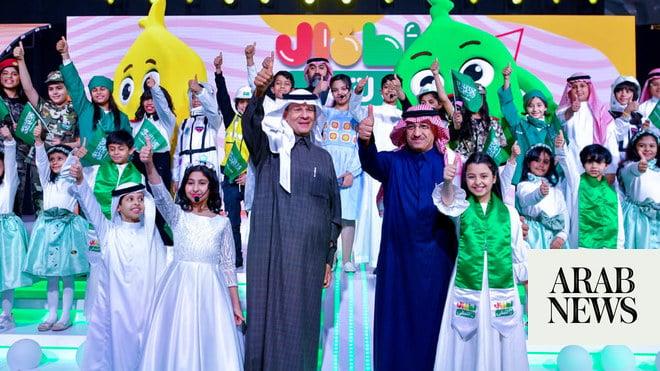
JEDDAH: Global Shapers Jeddah, a network of young people working together to address local and international challenges, held an event about the future of technology on Saturday.
The workshops and talks focused on the Fourth Industrial Revolution (4IR) — artificial intelligence, blockchain, robots, 3D-printing and the internet of things.
The event was the launchpad for Meraab, a new initiative to serve Saudi society through technology.
Hassan Gady, who helped found Meraab, said the initiative was designed to bring together young people and equip them with skills for the next decade.
“We try to gather people who have a common interest, which is future technology, and are passionate about programming skills in business under one roof,” he told Arab News.
Meraab targets talented Saudi students in Jeddah and Riyadh, aged from 16 to 30, who are excited about creating better technology.
“We will focus mainly on the Fourth Industrial Revolution ... 12 meetings will be held during the year. Each meeting will discuss a topic related to one future technology including energy, medicine, outer space, technology, education, health and water. In our community, we need to redirect youth interests toward outer space and we will do this through Meraab because it is the future,” he added.
Gady said he was looking for ambitious and bold young people, people who were ready to improve Saudi Arabia. “I don’t want people to come, listen and go. I want those who will listen, discuss and give suggestions.”
Meraab has a partnership with Popular Science, one of the world’s oldest science magazines.
A monthly report will be published on the magazine’s website about the outcomes of Meraab meetings.
Meraab will also soon announce a partnership with the Saudi Federation for Cyber Security, Programming and Drones.Future jobs need
new skills
Future generations will have new careers related to 4IR and they should be ready to deal with within the next 10 years.
According to the World Economic Forum, approximately 65 percent of future jobs that will be occupied by the current primary school intake do not exist.
Hani Shodary, from King Abdulaziz University, said educational outputs needed to be adjusted for the changing labor market. He said work was being done to prepare students for future technology and careers.
“We are focusing a lot on enhancing and improving the skills that will help prepare students for future jobs ... we see what skills are needed in our labor market through studies predicting the future and, based on that, we develop certain academic programs,” Shodary told Arab News.
“Currently we are focusing on developing skills for the 21st century, that should be there in all students — the skills needed for 4IR careers. In 2030 there will be many new jobs that do not exist now, and thus students of today should be ready for them, and the technologies needed to do them.”
Raghad Alattas, from the Jeddah hub of Global Shapers, said the network was in a position to influence technology and the future of jobs.
She said that influence would come through leveraging the network’s links with the World Economic Forum and sharing that information and knowledge with the wider community.
“Awareness is a key component in order to expedite the process and make it real,” she told Arab News.












